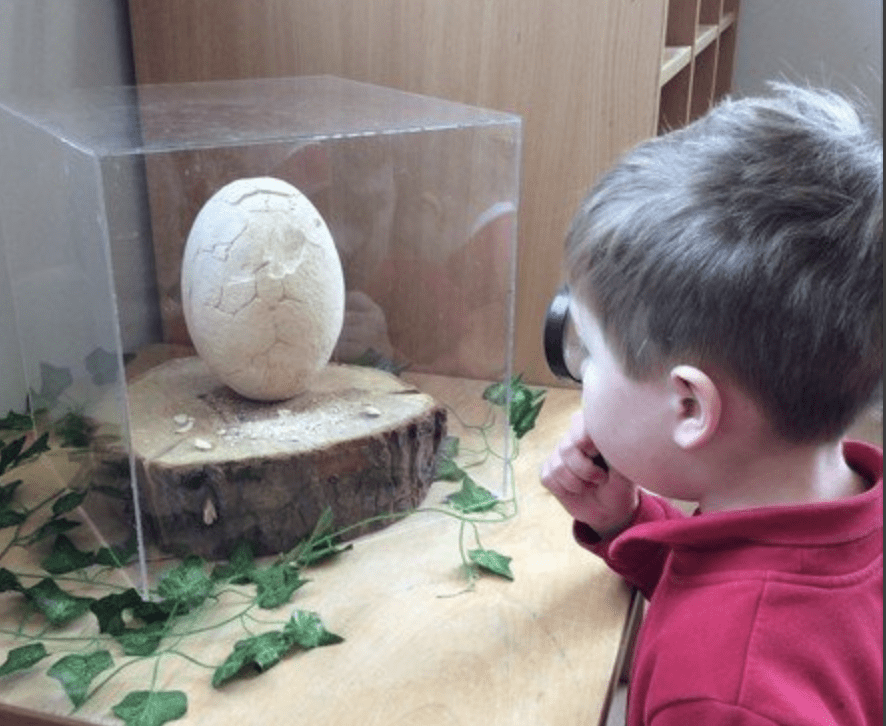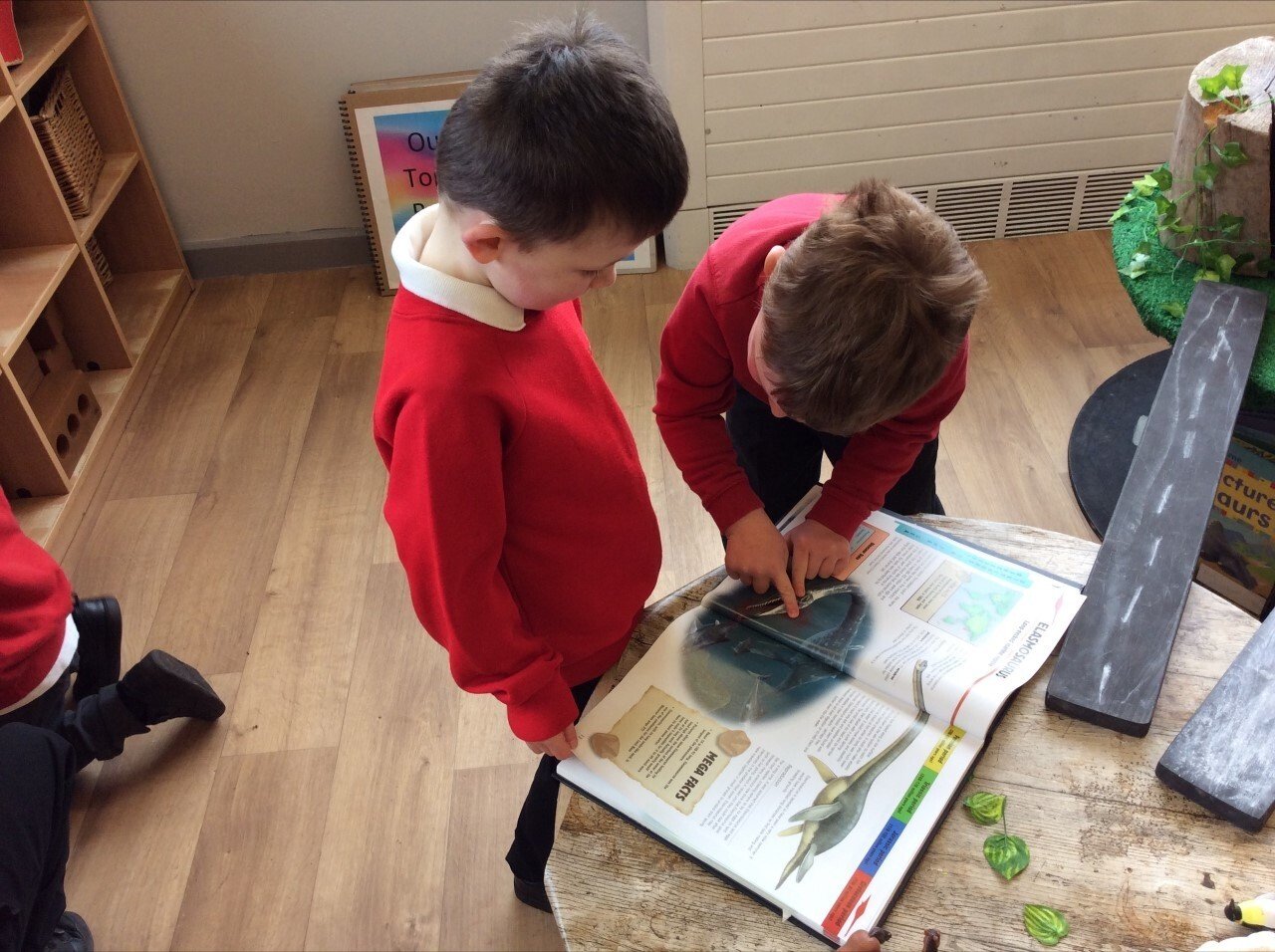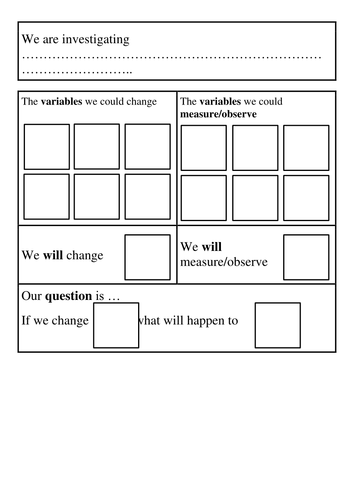Science:
Science is a dominant part of Rillington Primary School's curriculum offer, we ensure that pupils work scientifically as well as gain scientific knowledge and understanding throughout their time in our school.
Our high-quality science education provides our children with the foundations for understanding the world through the specific disciplines of biology, chemistry and physics.
Science has changed our lives and is vital to the world’s future prosperity, and all pupils should be taught essential aspects of the knowledge, methods, processes and uses of science.
Intent:
The National Curriculum states, ‘A high-quality science education provides the foundations for understanding the world through the specific disciplines of biology, chemistry and physics. Science has changed our lives and is vital to the world’s future prosperity, and all children should be taught essential aspects of the knowledge, methods, processes and uses of science.’
The national curriculum for science aims to ensure that all children:
* develop scientific knowledge and conceptual understanding through the specific disciplines of biology, chemistry and physics
* develop understanding of the nature, processes and methods of science through different types of science enquiries that help them to answer scientific questions about the world around them
* are equipped with the scientific knowledge required to understand the uses and implications of science, today and for the future
* develop an enthusiasm and enjoyment of scientific learning and discovery
* develop the essential scientific enquiry skills to deepen their scientific knowledge
At Rillington Primary School we aim to improve children’s knowledge and understanding of scientific concepts, whilst supporting children’s long term memory and helping them to ‘know more and remember more’. We want our children to ask questions and be curious about the world around them in order to understand how science can be used to explain what is occurring, predict how things will behave, and analyse causes.
Implementation:
Curriculum:
Teachers create a positive attitude to science learning within their classrooms and reinforce an expectation that all children can achieve high standards in science. Our whole school approach to the teaching and learning of science involves the following:
• A well planned and sequence curriculum in which new knowledge and skills build on what has been taught before, and towards defined end points.
• Science is taught in planned and arranged blocks, using the National Curriculum and our progression and skills document to provide a structure and skills development for science being taught. Where possible, links to learning across a range of subjects are used to enable the achievement of a greater depth of knowledge.
• Science is planned for through a four-year rolling programme for KS2 and a two year rolling programme for KS1
At both key stages, the sticky knowledge takes full account of the national curriculum’s main characteristics of:
•Physics
•Chemistry•Biology
•Working scientifically
• Short-term plans strive for engaging lessons, often involving high-quality resources to aid understanding of conceptual knowledge.
• The curriculum is designed in such a way it ensures that the integrity science remains, whilst providing natural links between science and reading. Our science curriculum uses excellent quality literature to ensure that children are reading cross curricularly, for example, ‘The man who walked between the towers’, helps us focus on ‘Forces’ in science.
• A working wall is used to support and celebrate learning throughout each unit of work. This will also be used to support the acquisition of key knowledge and will support the accurate use of an extended specialist vocabulary.
In the EYFS, continuous provision is in place to support children in meeting the Early Learning Goals; this is covered through the year, based on themes, children’s interests and the time of the year.
Science in the Early Years is mainly taught through ‘Understanding the World’.
The EYFS Framework states:
Understanding the world involves guiding children to make sense of their physical world and their community. The frequency and range of children’s personal experiences increases their knowledge and sense of the world around them – from visiting parks, libraries and museums to meeting important members of society such as police officers, nurses and firefighters. In addition, listening to a broad selection of stories, non-fiction, rhymes and poems will foster their understanding of our culturally, socially, technologically and ecologically diverse world. As well as building important knowledge, this extends their familiarity with words that support understanding across domains. Enriching and widening children’s vocabulary will support later reading comprehension.
The table below outlines the aspects of the EYFS Curriculum that feed into our Science curriculum progression:
|
Nursery (3 - 4 year olds) |
Reception (4-5 year olds) |
Early Learning Goals |
|
The Natural World Comments and asks questions about what aspects of their familiar world such as the place where they live or the natural world
Talks about why things happen and how things work.
Developing understanding of growth, decay and changes over time.
Shows care and concern for living things and the environment.
Begin to understand the effect of their behaviour can have on the environment. |
The Natural World Talk about and investigate the immediate natural environment and material.
Compare, describe and investigate materials i.e leaves, plants, rocks, bark.
Explore new vocabulary.
Develop an understanding of the effect of human impact and their own behaviour on the environment.
Show care and concern for livings things and the environment.
Describe what they can see, hear and feel outside.
Develop an understanding and investigate growth, decay, changes over time. Name and describe the different seasons and their weather.
Asks questions about the natural world and where they live.
Use appropriate vocabulary to express ideas and observations.
Understand the importance of caring for the environment and natural world.
Talk about how their environment and another might differ.
Observe and interact with natural processes – ice melting, sound vibration, shadows, floating.
Observe and discuss similarities, changes and patterns in seasons, weather, growth.
Compare own environment and experience of the natural world to others.
Observe plants and animals and explain what changes occur and why.
Using a magnifying glass to observe
|
ELG: The Natural World
Explore the natural world around them, making observations and drawing pictures of animals and plants
Know some similarities and differences between the natural world around them and contrasting environments, drawing on their experiences and what has been read in class.
Understand some of the important processes and changes in the natural world around them, including the seasons and changing states of matter. |
|
Vocabulary Seasons/weather – Autumn, Winter, Spring, Summer, freeze, melt, weather, storm, rain, snow, hail, lightning, thunder, volcano, tornados Environment – pollution, waste, recycle, reuse, sustainable, damage, destroy, deforestation, effect, decay Life cycles/plants/animals – grow develop, stem, roots, petals, pollen, pollinator, species, hibernate, mammals, reptiles, insects, wings, antennae, herbivore, carnivore, omnivore Identification – observe, identify, describe, details, features Forces – pull, push, attract, repel, magnetic |
||
Curriculum long term plan science
Science - biology physics and chemistry progression of skills, knowledge and vocabulary

Our science lessons:
The knowledge, skills and understanding of science is of paramount importance as is the pedagogy that underpins the suggested activities.
• The delivery of science aims to be engaging, often involving high-quality resources to aid understanding of conceptual knowledge.
• We base our lessons on the EBIPA model of teaching science

Engage:
The engage part of the lesson motivate children by providing them with an opportunity to succeed as soon as they enter the classroom and recapping/consolidating key knowledge from the previous lesson.
Prior learning:
Existing knowledge is checked at the beginning of each topic, asking children what they already know. This ensures that teaching is informed by the children’s starting points and allows teachers to adapt planning if current understanding does not align with the learning progression document.
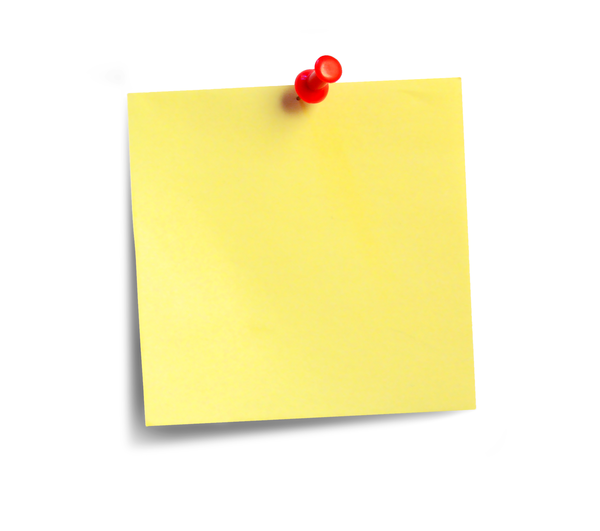
Introduce:
In this part we introduce new knowledge to the children, we begin with a concrete idea or simple context so that as teachers we start the learning from what our children already know.
Modelling concepts to our children is important and we always ensure this occurs. What we deal with in science cannot be seen and so models are a powerful tool in the science classroom that help us represent, describe, explain and reason about the material world. Teachers demonstrate how to use scientific equipment, and the various Working Scientifically skills in order to embed scientific understanding.
New vocabulary and challenging concepts are introduced through direct teaching. To support the retention of knowledge, children are provided with a knowledge organiser at the beginning of every unit which is engaged with regularly during the course of a topic.
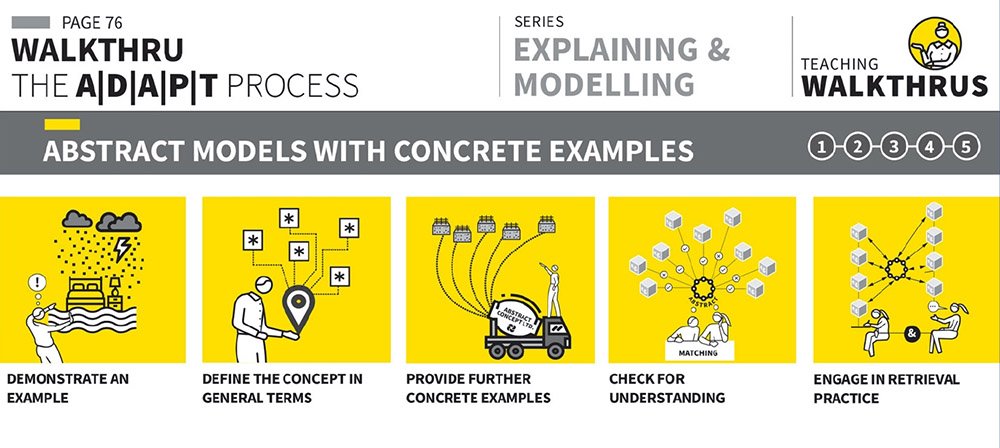
Build:
Children have the opportunity to practice what they have learnt in the introduce section to consolidate learning and develop understanding.

Apply:
Children have the opportunity to apply what they have learnt to new situations. This will assess understanding and consolidate understanding.
Assessment:
• As part of the introduction to each new science topic, teachers review what the children know already. This informs the programme of study so that it takes account of children’s starting points.
• Lessons are planned to ensure that key knowledge is developed over time, over the course of each science block and in a progressive sequence. Key knowledge is reviewed by the children and
rigorously checked and consolidated by the teacher at the end of each unit of work.
• Lessons within each unit are also planned to ensure the systematic development of the key identified skills across the school.
• Teachers provide children with effective feedback, both orally and written, in relation to the aim of the lesson. Work in books is marked weekly with a comment. Marking indicates whether the child
has gained a shallow or secure understanding in regards to the lesson objective. Where misconceptions arise, these are addressed by the teacher. Accurate spelling of topical vocabulary is
also identified in books.
• In EYFS, we assess the children’s Understanding of the World according to the Development Matters statements.
Other opportunities:
• Teachers find opportunities to develop children’s understanding of their surroundings by accessing outdoor learning and workshops with experts.
• Children are offered a wide range of extra-curricular activities, visits, trips and visitors to complement and broaden the curriculum; these are purposeful and link with the knowledge being taught in class.
• We have established a partnership with our local secondary school – Malton School – who help to inspire children’s curiosity in the subject and support the primary to secondary transition.
• Regular events, such as Science Week, allow all children to come off-timetable, to provide broader provision and the acquisition and application of knowledge and skills.
Impact:
• Our children engage in a high-quality science education, it provides children with the foundations and knowledge for understanding the world and supports their future learning.
• Children have a deep knowledge of scientific theories and how this can impact in the wider world.

 Translate
Translate


























